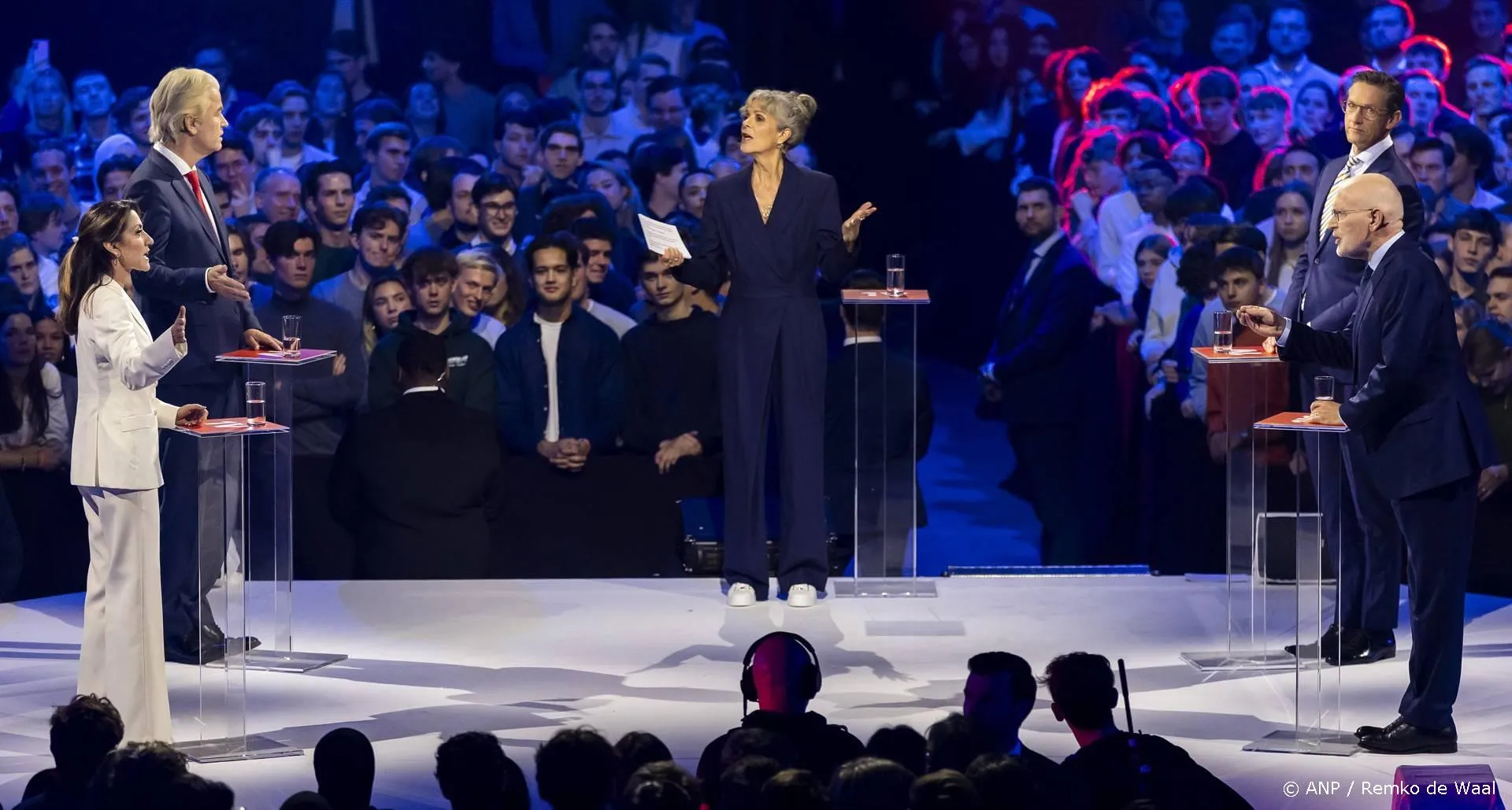Wetenschapsmanipulatie endemisch bij VNklimaatpanel
Sonja BoehmerChristiansen: 'Science on tap, not on top.'
Reedse vele malen schreef ik dat de werkwijze van het VNklimaatpanel (IPCC) wordt gekenmerkt door 'cherrypicking', 'spindoctoring' en 'scaremongering'. De bekende Britse klimaatsceptica, Sonja BoehmerChristiansen, heeft ooit eens gezegd: 'Science on tap, not on top.'
Natuurlijk is een dergelijke bewering een klap in het gezicht van de vele integere wetenschappers die zich inzetten voor het IPCC. Hoewel de meesten van hen natuurlijk een vaste aanstelling hebben bij door de overheid gefinancierde wetenschappelijke instellingen, krijgen ze gewoonlijk geen extra betaling voor hun werk voor het IPCC en doen ze dat vaak in hun vrije tijd. Ik ken velen van hen en ik twijfel niet aan hun persoonlijke professionaliteit en integriteit. Maar dat neemt niet weg dat er in het IPCCproces voortdurend zaken mislopen.
De wetenschappers zelf voelen zich daarbij niet lekker. In de regel morren de meesten van hen in stilte. Mede uit collegiale loyaliteit houden ze de vuile was binnen. Maar soms loopt het de spuigaten uit en trekken zij aan de bel.
Ik heb reeds geschreven over het protest van Sussex en VUprofessor Richard Tol. Maar hij is niet de enige. Hij heeft onlangs gezelschap gekregen van Harvardprofessor Robert Stavins.
Onder de titel, 'Stavins and Tol on IPCC WG3', besteedt Judith Curry aandacht aan hun uitspraken op haar blog.
Richard Tol:
In September 2013, I stepped down from the team that prepared the draft of the Summary for Policy Makers to the Fifth Assessment Report (AR5) of Working Group II of the Intergovernmental Panel on Climate Change (IPCC). This attracted worldwide media attention in April 2014.
As a Convening Lead Author of one of the chapters, I was automatically on the team to draft the Summary for Policy Makers (SPM). AR5 is a literature review of 2,600 pages long. It assesses a large body of scholarly publication. In some places, the chapters are so condensed that there are a few words per article in the learned literature. The SPM then distills the key messages into 44 pages but everyone knows that policy and media will only pick up a few sentences. This leads to a contest between chapters my impact is worst, so I will get the headlines.
In the earlier drafts of the SPM, there was a key message that was new, snappy and relevant: Many of the more worrying impacts of climate change really are symptoms of mismanagement and underdevelopment.
This message does not support the political agenda for greenhouse gas emission reduction. Later drafts put more and more emphasis on the reasons for concern about climate change, a concept I had helped to develop for AR3. Raising the alarm about climate change has been tried before, many times in fact, but it has not had an appreciable effect on greenhouse gas emissions.
The international climate negotiations of 2013 in Warsaw concluded that poor countries might be entitled to compensation for the impacts of climate change. It stands to reason that the IPCC would be asked to assess the size of those impacts and hence the compensation package. This led to an undignified bidding war among delegations my country is more vulnerable than yours that descended into farce when landlocked countries vigorously protested that they too would suffer from sea level rise.
The SPM omits that better cultivars and improved irrigation increase crop yields. It shows the impact of sea level rise on the most vulnerable country, but does not mention the average. It emphasize the impacts of increased heat stress but downplays reduced cold stress. It warns about poverty traps, violent conflict and mass migration without much support in the literature. The media, of course, exaggerated further.
Alarmism feeds polarization. Climate zealots want to burn heretics of global warming on a stick. Others only see incompetence and conspiracy in climate research, and nepotism in climate policy. A polarized debate is not conducive to enlightened policy in an area as complex as climate change . The IPCC missed an opportunity to restore itself as a sober authority, accepted (perhaps only grudgingly) by most.
The IPCC does not guard itself against selection bias and group think. Academics who worry about climate change are more likely to publish about it, and more likely to get into the IPCC. Groups of like-minded people reinforce their beliefs. The environment agencies that comment on the draft IPCC report will not argue that their department is obsolete. The IPCC should therefore be taken out of the hands of the climate bureaucracy and transferred to the academic authorities.
Daarnaast citeert Judith Curry uit het schrijven van Robert Stavins
Over the past 5 years, I have dedicated an immense amount of time and effort to serving as the Co-Coordinating Lead Author (CLA) of Chapter 13, International Cooperation: Agreements and Instruments, of Working Group III (Mitigation) of the Fifth Assessment Report (AR5) of the Intergovernmental Panel on Climate Change (IPCC). Several of the CLAs present with me in Berlin commented that given the nature and outcome of the week, the resulting document should probably be called the Summary by Policymakers, rather than the Summary for Policymakers.
The process of the government approval sessions was exceptionally frustrating, and the outcome of that process the final SPM was in some regards disappointing. Two weeks ago, immediately after returning from Berlin, I sent a letter to the Co-Chairs of Working Group III Ottmar Edenhofer, Ramon Pichs-Madruga, and Youba Sokona expressing my disappointment with the government approval process and its outcome in regard to the part of the assessment for which I had primary responsibility, SPM.5.2, International Cooperation. At the time, I did not release my letter publically, because I did not want to get in the way of the important messages that remained in the SPM and were receiving public attention through the Working Group III release. .
In this letter, I will not comment on the government review and revision process that affected other parts of the SPM, other than to note that as the week progressed, I was surprised by the degree to which governments felt free to recommend and sometimes insist on detailed changes to the SPM text on purely political, as opposed to scientific bases.
The general motivations for government revisions from most (but not all) participating delegations appeared to be quite clear in the plenary sessions. In these contact groups, government representatives worked to suppress text that might jeopardize their negotiating stances in international negotiations under the United Nations Framework Convention on Climate Change (UNFCCC).
To ask these experienced UNFCCC negotiators to approve text that critically assessed the scholarly literature on which they themselves are the interested parties, created an irreconcilable conflict of interest. Thus, the country representatives were placed in an awkward and problematic position by the nature of the process.
Over the course of the two hours of the contact group deliberations, it became clear that the only way the assembled government representatives would approve text for SPM.5.2 was essentially to remove all controversial text (that is, text that was uncomfortable for any one individual government), which meant deleting almost 75% of the text, including nearly all explications and examples under the bolded headings. .
I understand that country representatives were only doing their job, so I do not implicate them personally; however, the process the IPCC followed resulted in a process that built political credibility by sacrificing scientific integrity.
Het gaat hier dus om uitlatingen van wetenschappers die nauw bij het IPCCproces zijn betrokken. Maar deze bezwaren zijn reeds zo'n twintig jaar geleden door klimaatsceptici naar voren gebracht. Intussen is er niets aan de praktijken van het VNklimaatpanel veranderd, althans te oordelen naar de samenvattingen voor beleidsmakers en de uitleg daarvan door prominente IPCCers. De aanbevelingen van het IAC, waaraan Louise Fresco, thans rector van Wageningen, heeft meegewerkt, hebben ook geen deuk in een pakje boter kunnen slaan. We moeten overigens de samenvattingen voor beleidsmakers niet over dezelfde kam scheren als de onderliggende wetenschappelijke rapporten. Die bevatten veel waardevolle elementen en daarin valt duidelijk progressie waar te nemen in de richting van meer realisme.
Maar al met al kan toch worden geconstateerd dat het IPCC ongeneselijk ziek is en een smet op de integriteit van de wetenschap. De nieuwst affaire van wetenschappelijke fraude aan mijn eigen universiteit, de UVA in Amsterdam, waarover Jan Hilderink op DDS rapporteerde, verzinkt daarbij in het niet. NRC HB bracht het bericht als eerste. Over de megafraude bij het IPCC mochten wij nog niets in deze slijpsteen van de geest lezen.
Voor mijn eerdere DDSbijdragen zie hier.
Ga verder met lezen
Dit vind je misschien ook leuk
Laat mensen jouw mening weten
Lees ook
Loading


